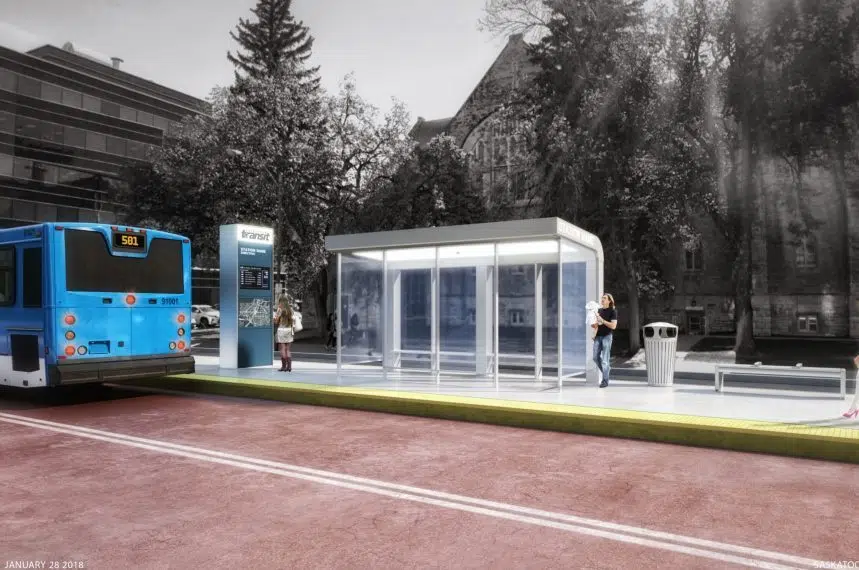Traffic flow along 1st Avenue and Broadway Avenue are going to change significantly starting in 2022 after city council approved Bus Rapid Transit (BRT) routes along the roads on Monday.
The 1st Avenue BRT corridor will involve bus-only lanes in the centre of the roadway, with a centre median bus station planned in front of Midtown Plaza and at 23rd Street.
However, BRT on Broadway Avenue will look different.
After hearing feedback from business owners and supporters of the Broadway district, city council voted 10-1 in favour of a “mixed traffic” BRT plan for the stretch of road connecting 8th Street to the downtown core.
The plan would involve buses travelling along with regular traffic on Broadway Avenue, but they would benefit from a traffic signal priority system — which would ensure more green lights for BRT buses along the road.
Councillors had been presented with an option to choose Broadway Ave. as the BRT route, but delay a decision on whether it would take the form of mixed traffic or dedicated lanes.
However, Broadway BID executive director DeAnn Mercier changed minds after she presented business owner surveys showing entrepreneurs didn’t want the spectre of a future decision to install bus-only lanes hanging in the future.
The survey found 46.7 per cent of Broadway business owners saw a deferred plan on mixed traffic or dedicated lanes as the least preferable option.
There was also a large amount of opposition to bus-only lanes along Broadway, with some raising concerns over how it would affect the unique character of the historic district.
An option was also presented to bypass Broadway Ave. completely, and run the BRT line down 8th Street to the Sid Buckwold Bridge as a link to the downtown. City staff said this was the least preferable option, since studies show BRT lines work best when operating in densely populated areas like Broadway.
Ward 5 Coun. Randy Donauer was the only councillor opposed to the Broadway Ave. route, indicating he would have preferred the Sid Buckwold Bridge connection.
Construction on the projects is expected to begin in 2022, with the BRT system becoming fully operational by 2025.
The project is expected to cost a total of $120 million, with some funding being provided by federal infrastructure grants.











